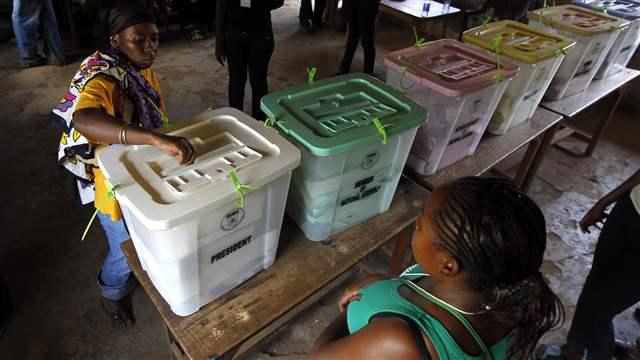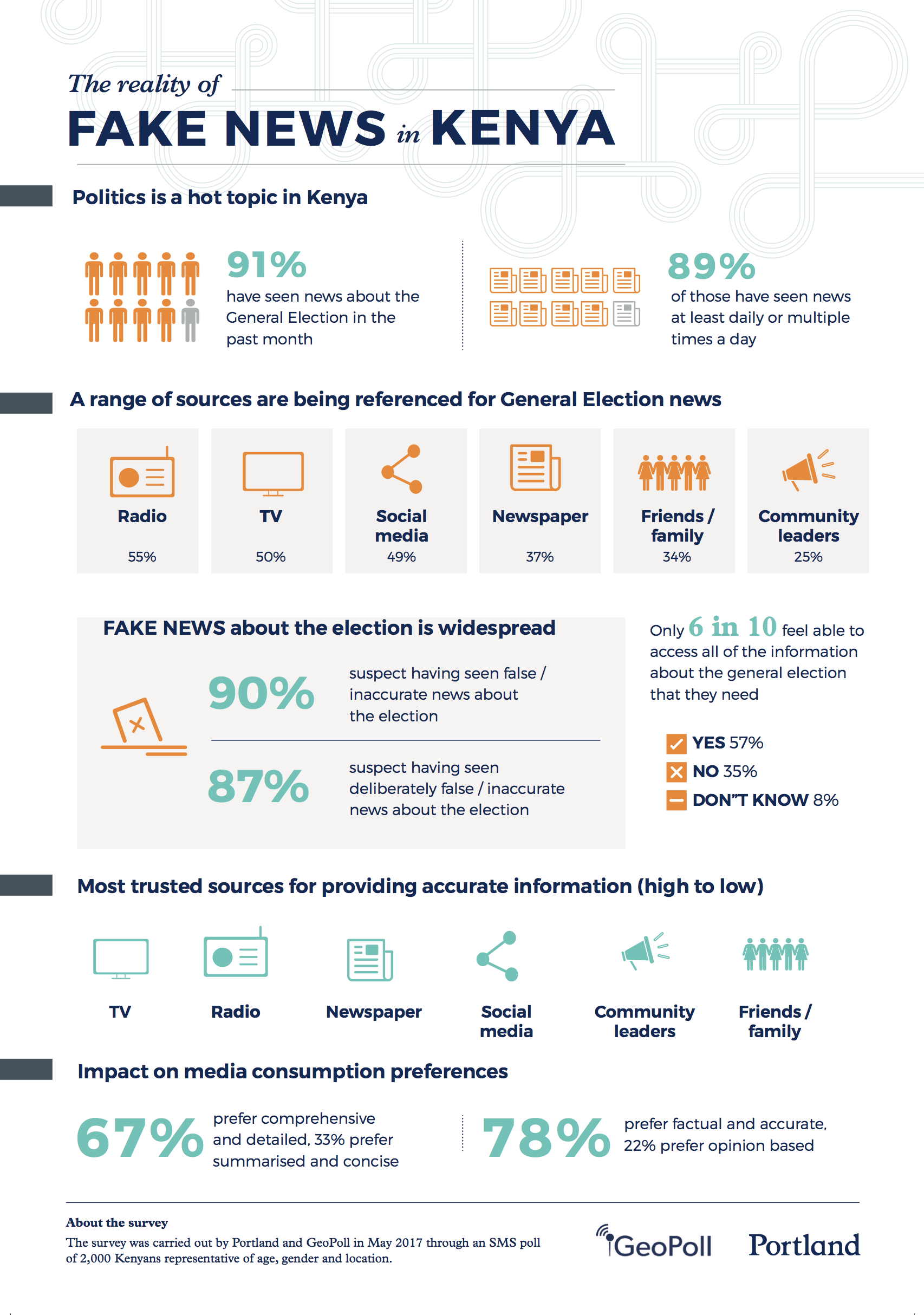A new study reveals that 90% of Kenyans have seen or heard false news about the 2017 general election, with 87% reporting instances of deliberately false – or fake – news.
The Reality of Fake News in Kenya, launched today in Nairobi, is the first-ever study aimed at quantifying the prevalence and impact of false information during an election campaign in Africa.
The nationwide survey was led by strategic communications consultancy Portland in collaboration with GeoPoll, a mobile surveying platform.
Conducted via SMS, the survey asked a nationally representative sample of 2,000 Kenyans a series of questions about their consumption of news during May 2017 in relation to the forthcoming general election.
The survey found:
- 90% of respondents reported having seen false or inaccurate news in relation to the general election. 87% of respondents regarded this news as being deliberately misleading – or fake news.
- Traditional media remain the most trusted news sources, with television ranking highest, followed by radio and newspapers.
- Radio is the most consistently accessed source of news in Kenya, with the smallest variation between different provinces across the country.
- Social media is widely used by Kenyans of all ages to access and share news, with 49% of Kenyans using social platforms to secure general election news. However, social media consistently ranks lower than traditional media on trust.
- Facebook and WhatsApp are the most popular social media platforms for news, preferred overall by 46% and 25% respectively.
- Friends and family, and community leaders, are the least trusted sources of news overall, ranked as the least likely to provide accurate information about the general election.
- 57% Kenyans feel able to access all the information about the general election that they need.
- A vast majority of Kenyans (78%) would like more factual and accurate information about the general election instead of opinion and commentary.
- 67% of Kenyans prefer comprehensive and detailed information about politics. 33% prefer summarised and concise information.
Allan Kamau, Head of Portland Nairobi, said: “While fake news is evidently now a core part of the news mix in Kenya, reassuringly, our study found that Kenyans are already well attuned to spotting false information. Respondents cited conflicting data, controversial messages and biased reporting as the top factors that lead them to suspect something is false. Getting even more sophisticated about spotting and tackling fake news will be vital in ensuring that credible news sources can maintain levels of trust.”
Robert Watkinson, Partner at Portland, said: “With 4 in 10 Kenyans unable to access accurate information about the general election, fake news is clearly a limiting factor on the electorate’s ability to make informed decisions. By revealing the scale and impact of fake news, we hope this study provides a new point of reference, not just for political campaigning in Kenya but also for all communicators seeking to engage Kenyans in the digital age.”
Steve Gutterman, CEO of GeoPoll, said: “Growing mobile connectivity and usage in Kenya means that phones are increasingly being used to consume news and information. With mobile surveying, we are able to collect deep insights from samples right across Kenya. Using the GeoPoll platform, this survey has provided us with rich data on how much of an issue fake news is in Kenya and the impact it is having on how people access reliable information.”
Source: Africafeeds.com




